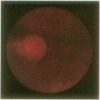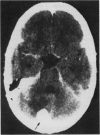Abstract
Von Hippel-Lindau disease, an autosomal dominant condition with complete penetrance, has been recognized in a large family that originated in Newfoundland but has some members who live in New Brunswick and Ontario. A collaborative investigation was begun in 1982 to document the number of affected members and the extent of their disease and to improve management of the disease. The condition has been documented in 38 members of the family, 28 living and 10 dead. The most common manifestations are retinal angioma (present in 60% of the gene carriers) and pheochromocytoma (present in 53%). Of the 28 living affected members 14 had been identified before the study began. Only 3 of the 14 patients in whom the disease was subsequently diagnosed presented with symptoms; in the remaining 11 the condition was detected by routine screening. Overall the mean age at the time of diagnosis was 23 years; in the 21 affected members of the fourth generation it was 18 years. The authors outline a regimen of regular screening for members at risk that has evolved as a result of their experience with this family.
Full text
PDF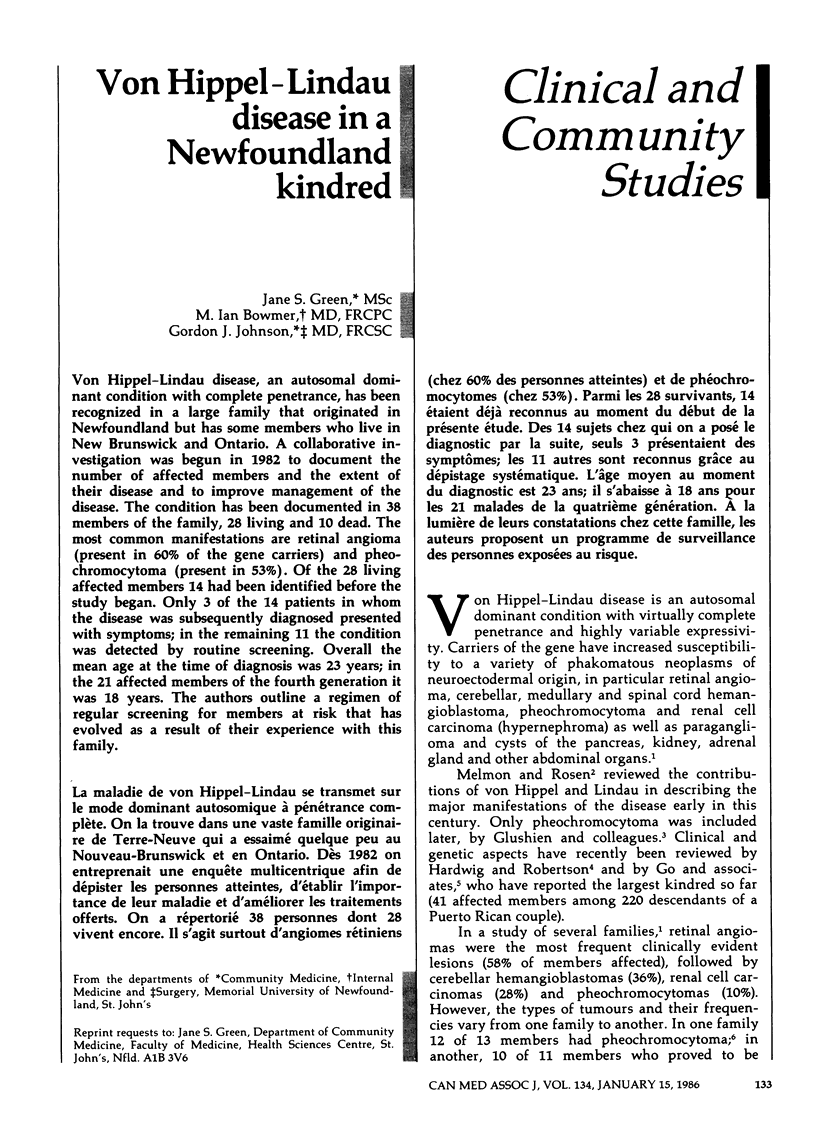
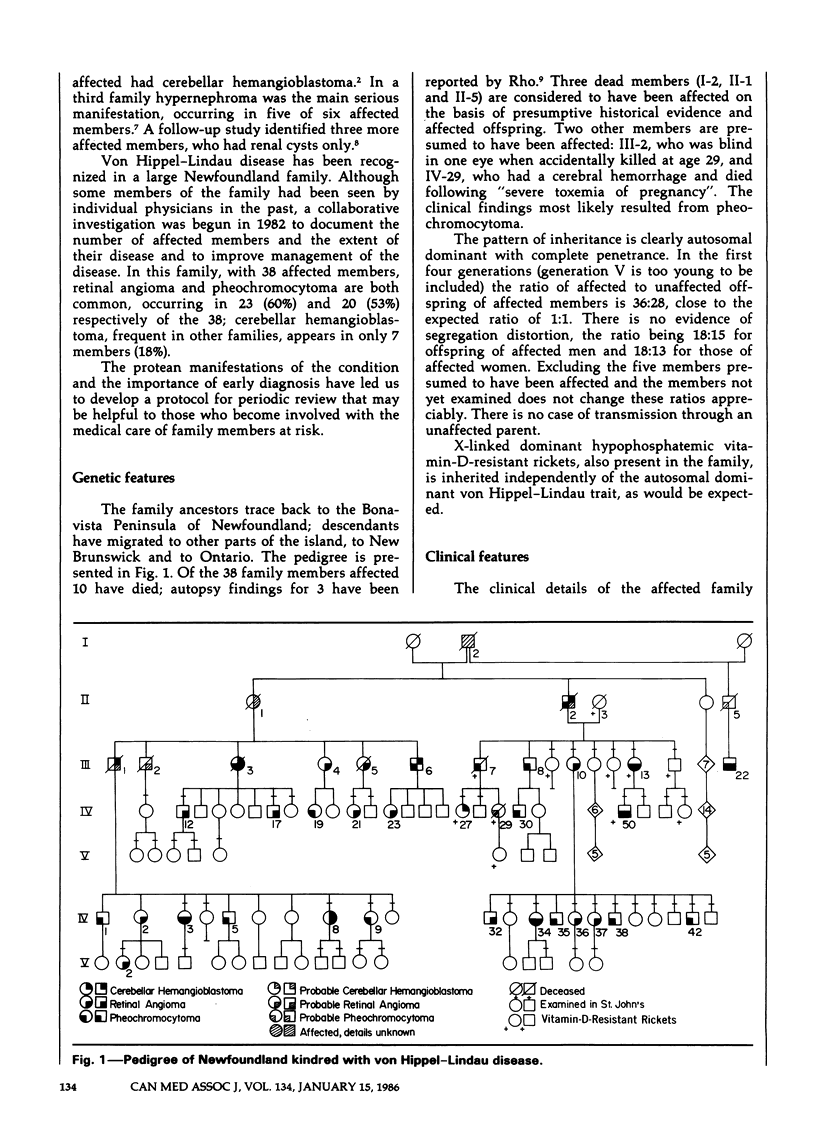
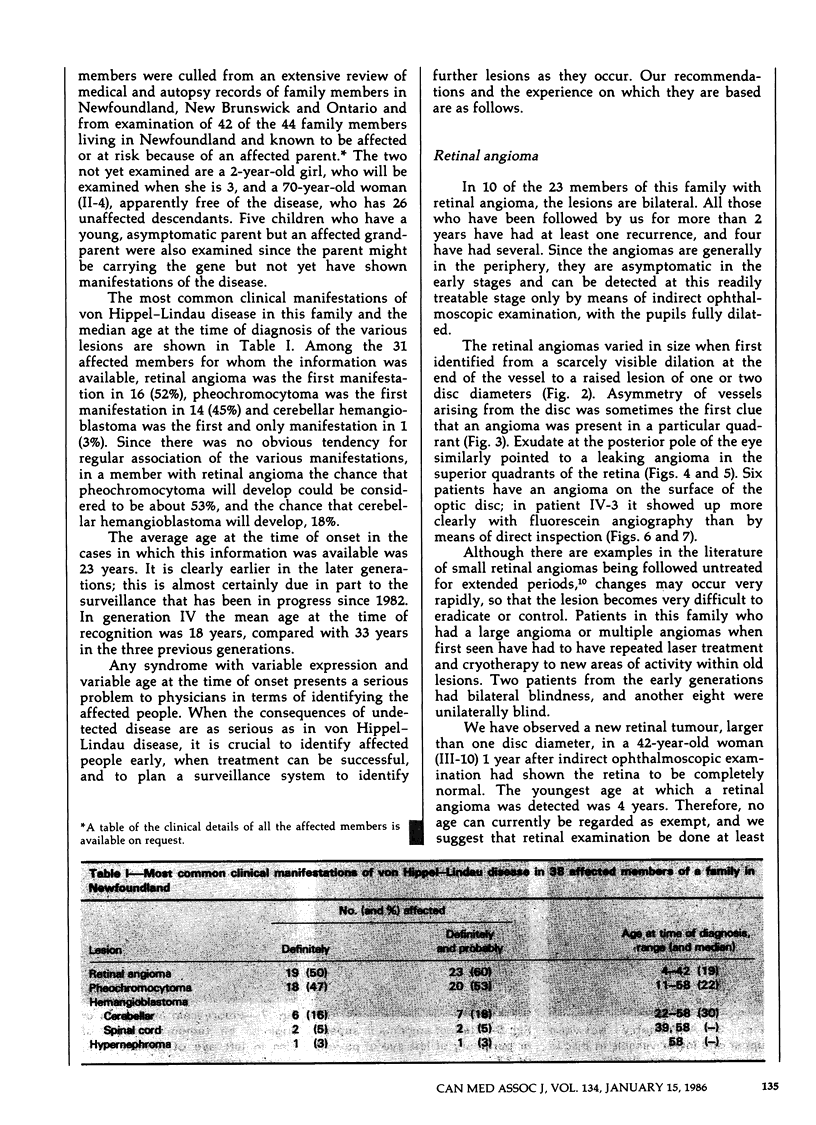
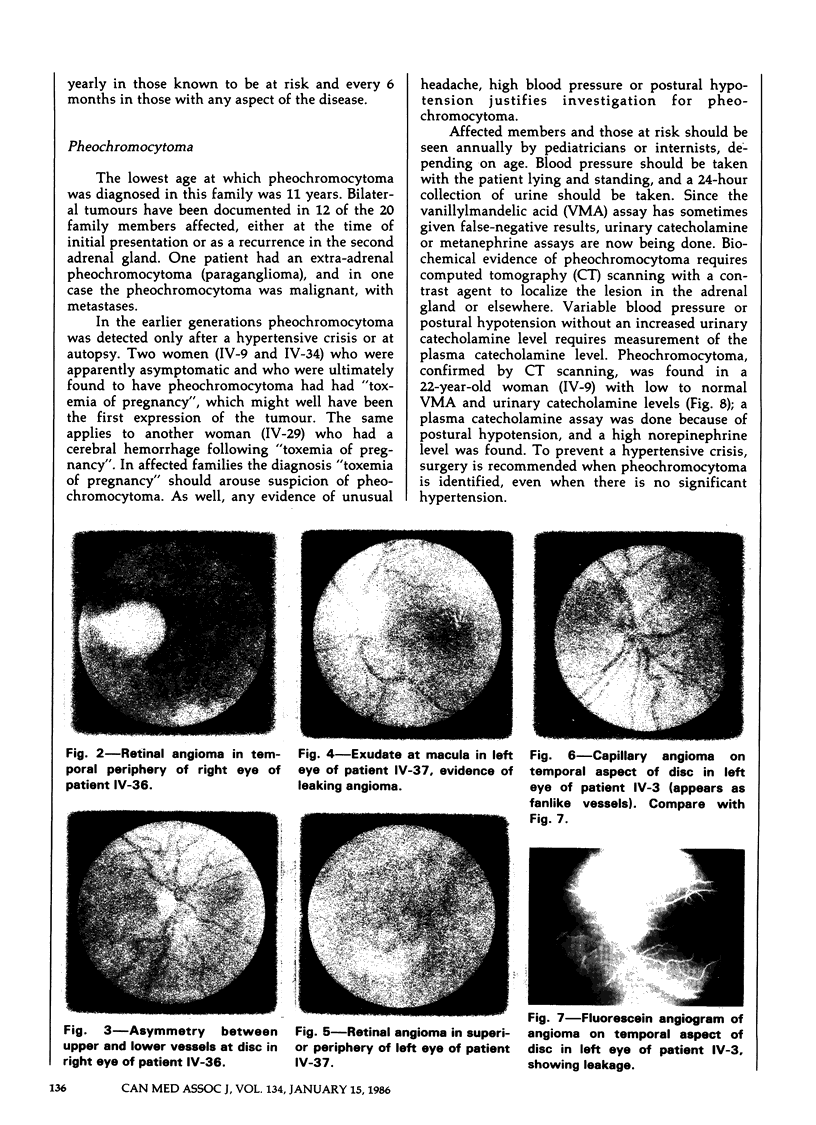
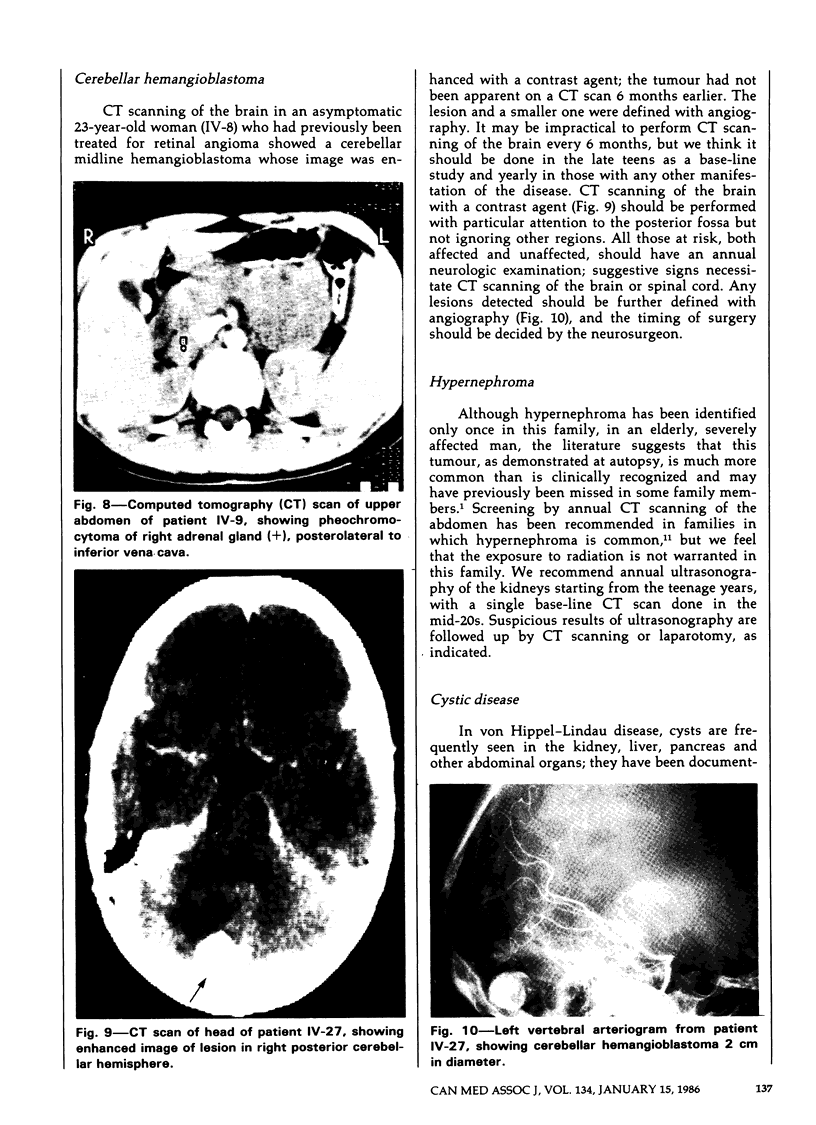
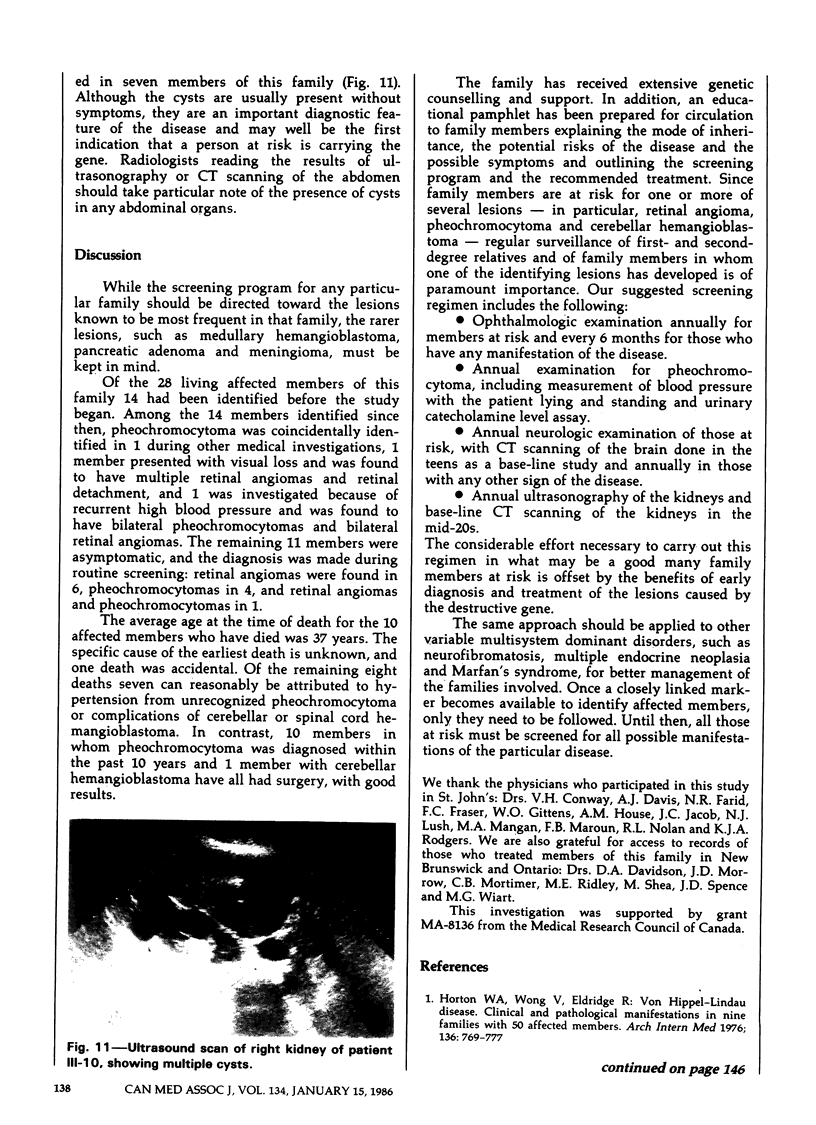
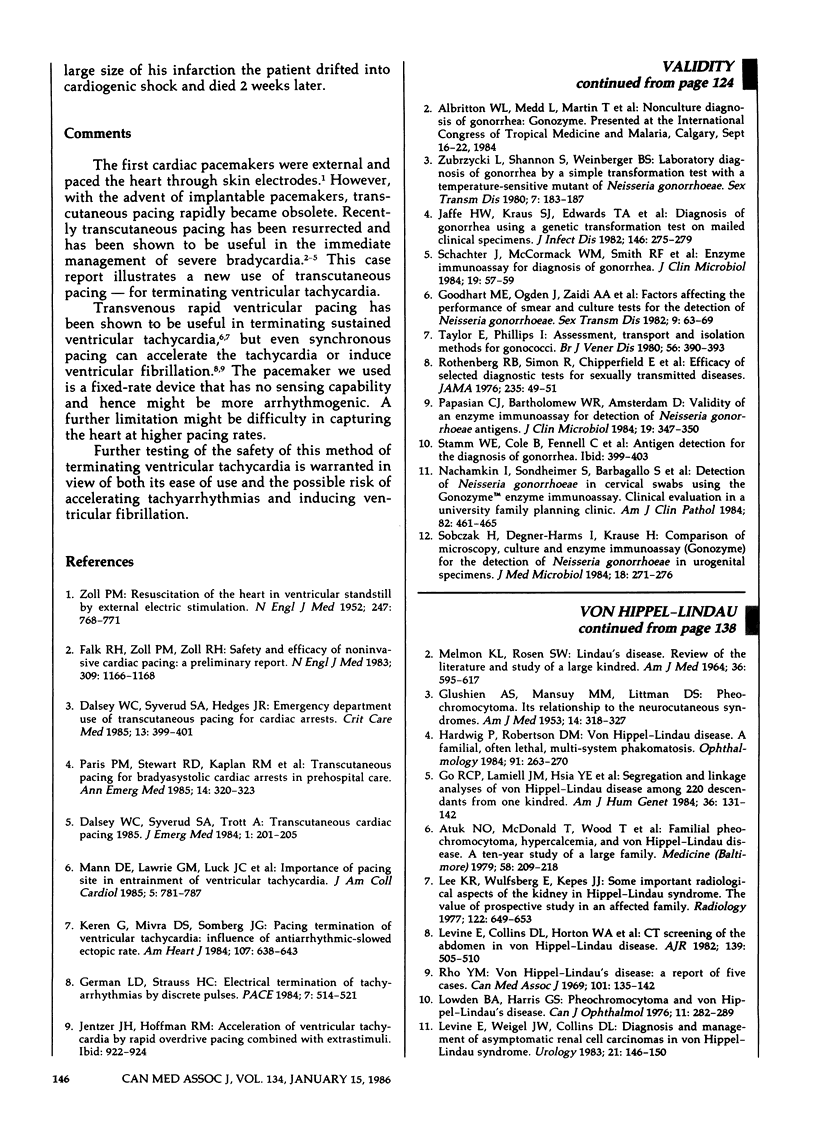
Images in this article
Selected References
These references are in PubMed. This may not be the complete list of references from this article.
- Atuk N. O., McDonald T., Wood T., Carpenter J. T., Walzak M. P., Donaldson M., Gillenwater J. Y. Familial pheochromocytoma, hypercalcemia, and von Hippel-Lindau disease. A ten year study of a large family. Medicine (Baltimore) 1979 May;58(3):209–218. doi: 10.1097/00005792-197905000-00001. [DOI] [PubMed] [Google Scholar]
- GLUSHIEN A. S., MANSUY M. M., LITTMAN D. S. Pheochromocytoma; its relationship to the neurocutaneous syndromes. Am J Med. 1953 Mar;14(3):318–327. doi: 10.1016/0002-9343(53)90043-6. [DOI] [PubMed] [Google Scholar]
- Go R. C., Lamiell J. M., Hsia Y. E., Yuen J. W., Paik Y. Segregation and linkage analyses of von Hippel Lindau disease among 220 descendants from one kindred. Am J Hum Genet. 1984 Jan;36(1):131–142. [PMC free article] [PubMed] [Google Scholar]
- Hardwig P., Robertson D. M. von Hippel-Lindau disease: a familial, often lethal, multi-system phakomatosis. Ophthalmology. 1984 Mar;91(3):263–270. doi: 10.1016/s0161-6420(84)34304-4. [DOI] [PubMed] [Google Scholar]
- Horton W. A., Wong V., Eldridge R. Von Hippel-Lindau disease: clinical and pathological manifestations in nine families with 50 affected members. Arch Intern Med. 1976 Jul;136(7):769–777. doi: 10.1001/archinte.136.7.769. [DOI] [PubMed] [Google Scholar]
- Lee K. R., Wulfsberg E., Kepes J. J. Some important radiological aspects of the kidney in Hippel-Lindau syndrome: the value of prospective study in an affected family. Radiology. 1977 Mar;122(3):649–653. doi: 10.1148/122.3.649. [DOI] [PubMed] [Google Scholar]
- Levine E., Collins D. L., Horton W. A., Schimke R. N. CT screening of the abdomen in von Hippel-Lindau disease. AJR Am J Roentgenol. 1982 Sep;139(3):505–510. doi: 10.2214/ajr.139.3.505. [DOI] [PubMed] [Google Scholar]
- Levine E., Weigel J. W., Collins D. L. Diagnosis and management of asymptomatic renal cell carcinomas in von Hippel-Lindau syndrome. Urology. 1983 Feb;21(2):146–150. doi: 10.1016/0090-4295(83)90010-9. [DOI] [PubMed] [Google Scholar]
- Lowden B. A., Harris G. S. Pheochromocytoma and von Hippel-Lindau's disease. Can J Ophthalmol. 1976 Oct;11(4):282–289. [PubMed] [Google Scholar]
- MELMON K. L., ROSEN S. W. LINDAU'S DISEASE. REVIEW OF THE LITERATURE AND STUDY OF A LARGE KINDRED. Am J Med. 1964 Apr;36:595–617. doi: 10.1016/0002-9343(64)90107-x. [DOI] [PubMed] [Google Scholar]
- Rho Y. M. Von Hippel-Lindau's disease: a report of five cases. Can Med Assoc J. 1969 Aug 9;101(3):135–142. [PMC free article] [PubMed] [Google Scholar]




